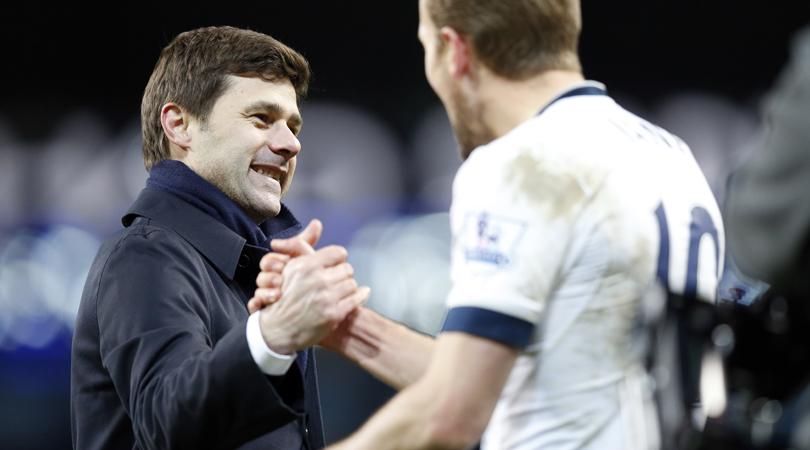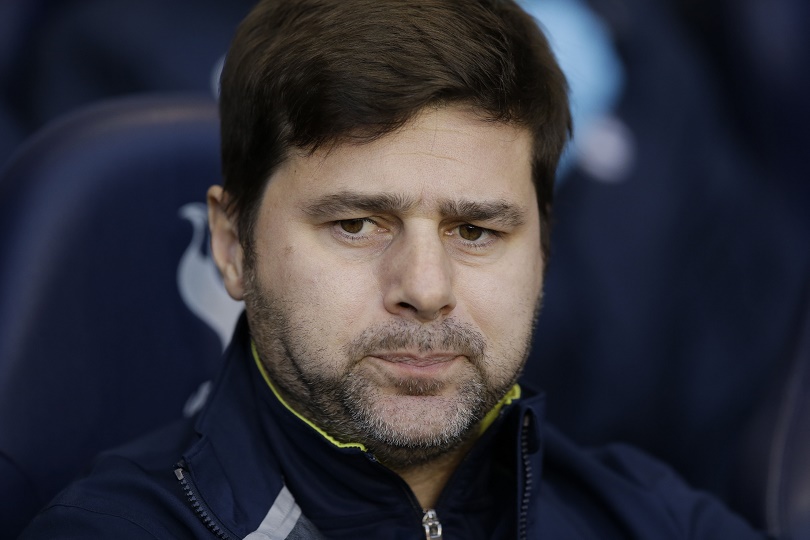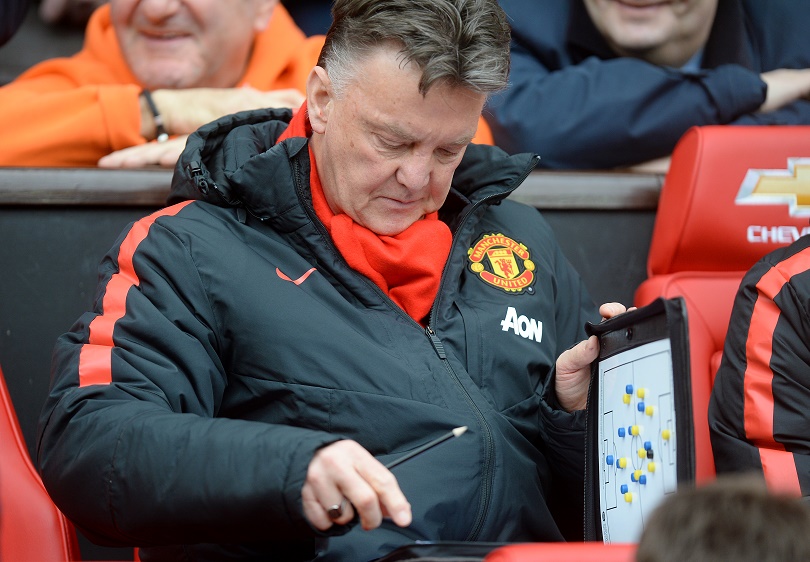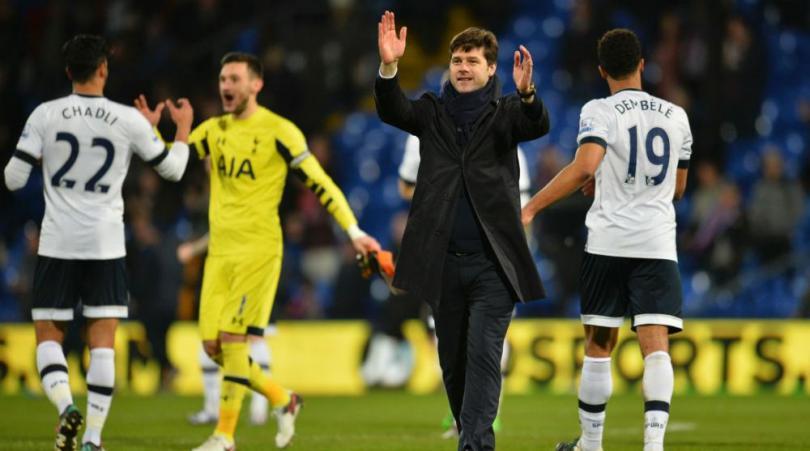Pochettino and Spurs provide the perfect example of time's preciousness
With Tottenham currently on course for their first top-two finish in over half a century, it's easy to forget the Argentine's difficult start at White Hart Lane. Seb Stafford-Bloor explains why boardroom patience is a virtue...

On a cold, wet winter's day in late 2014, Tottenham were drifting towards defeat at Villa Park. Andreas Weimann had given the home side a lead with their first goal for almost two months, and Spurs looked directionless and disorganised.
It was Mauricio Pochettino's 10th league game in charge and, good wins over Southampton and Queens Park Rangers aside, there had been little indication of the progress that was to come.
Much of that game against Villa has now been forgotten. Five minutes before the end, Nacer Chadli drifted into space at a corner to level the scores, before Harry Kane's deflected free-kick stole the points in stoppage time.
It was one of Kane's first steps towards what he would eventually become and, in need of something to cling to, many of the supporters channelled their energy away from the team's general underperformance and towards their new centre-forward.
October brought defeats to Manchester City and Newcastle and, a week later, Tottenham would be beaten at home by Stoke City; this was very much a team in transition and familiar, doubting opinions had started to reappear.
Slow start
The direction in which he was trying to take his new club wasn't one which his players were entirely equipped to travel and, despite a late 2014 upturn and impressive sequence of results in the second half of the season, Tottenham's imperfections were never far from the surface
In retrospect, that stuttering beginning was entirely understandable. Pochettino was trying to implement a vastly different style of play and had inherited a squad weakened by cracks of uninterest. The direction in which he was trying to take his new club wasn't one which his players were entirely equipped to travel and, despite a late 2014 upturn and impressive sequence of results in the second half of the season, Tottenham's imperfections were never far from the surface.
Get FourFourTwo Newsletter
The best features, fun and footballing quizzes, straight to your inbox every week.
In the present day, Pochettino's side attack with flowing, one-touch football and press with relentlessly rigid discipline, but those are new associations which have taken almost 18 months to flower.
Superficially, this is a story with relevance only to north London. Look closer, though, and it preaches an important lesson. Affording new managers patience and time may never be a guarantee of success, but it's telling that even a coach as capable as Pochettino took as long as he did to show his true worth.

Tottenham may have finished 2014/15 with a League Cup final appearance and a Europa League-qualifying league placing, but even as recently as last summer there was no hint of what they would become. Back then, the consensus was that they were a talented, hard-working team who should be good enough for fifth or sixth and might, if the stars aligned, flirt with the top four. Aspirations of Champions League qualification or a title challenge were laughable and, ultimately, that was because nobody yet knew what Pochettino was capable of.
Superficial judgements
The average supporter still puts stock in whether a head coach sits or stands on the touchline and is offered more reassurance by seeing him bawl at underperforming players than by thoughtfully taking notes
The modern game has simplified the perception of management. This is an age of soap opera drama and personalities and, consequently, the detail of a head coach's role has been lost within that fog.
He is seen as a shouter and a screamer, and preferably a player of mind games. The average supporter still puts stock in whether a head coach sits or stands on the touchline and is offered more reassurance by seeing him bawl at underperforming players than by thoughtfully taking notes.

It's those little biases that help to prematurely damn managers. Because, as members of the public we aren't privy to the training-ground detail and the incremental improvements it shows, we can only judge what we see in the stadiums or on television. It's a false economy and it enables an overly bold judgement as to which managers should stay, which should go and which should just be fired into the sun.
Relationship builder
Whether it's cordial, paternal or even authoritarian, a manager's ability to exert a psychological hold over his squad will likely determine whether he succeeds or fails
The more you read and learn about the profession, though, the more you realise how reliant on personal relationships it is. Being tactically astute is very important and so, in many cases, is having the right support staff, healthy working conditions and an eye for the transfer market.
More crucial, however, is the ability to develop a bond with players. Whether it's cordial, paternal or even authoritarian, a manager's ability to exert a psychological hold over his squad will likely determine whether he succeeds or fails. Having the respect and trust of players is what enables the implementation of strategy and the realisation of ideology. Even at an initial level, a player's basic human relationship with his manager can determine how hard he's willing to work, whether he looks after himself in his spare time and, in some instances, prevent him from leaving a club.
That kind of connection doesn't grow in weeks or even months, but over seasons. In Pochettino's case, his impact has clearly deepened as his players have bought into his approach. As their faith in him and his direction has grown, his priorities have essentially become theirs: the conditioning work is embraced rather than resented and the "team-first" mentality is accepted without resistance. That's why internationals like Nacer Chadli and Son Heung-min frequently start from the bench without growing disaffected, and why Christian Eriksen and Erik Lamela adapted their playing habits to suit the team.
Long-term gain
Not every manager is destined to succeed and, sometimes, clubs make errors in recruitment which are simply better to fix. But the contemporary trends are still self-defeating; though there are valid reasons as to why, there is still a reductive tendency for giving up on a manager-squad partnership before it's ever given time to properly mature.

Pochettino and his players have formed a strong bond
To Daniel Levy's credit, Pochettino was essentially given a degree of autonomy during his first year. Trouble-making or uncommitted players were purged and, contrary to popular convention, the manager was given time to shape his team's personality. At a different club, a cabal of well-paid malcontents would have been allowed to create an imbalance; at Tottenham, they were swiftly kicked through the exit door.

The Week In Tottenham: Hello, Champions League
Back of the Net: Clattenburg’s Chelsea-Spurs notebook mostly sketches of birds
That's how the process should work: Levy showed the requisite deference to his manager's need to build a harmonious group and, now, Tottenham have more positive momentum than at any other time during his tenure. It's an idealistic example, but it still has value as a blueprint – especially in an era during which clubs appear to make managerial appointments without being willing to provide the time or the context for their hiring theories to be realised.
It's a strange, contradictory failing which seems to be shaped by the game's short-termism, and it represents an inability to appreciate the true components of good management.
Seb Stafford-Bloor is a football writer at Tifo Football and member of the Football Writers' Association. He was formerly a regularly columnist for the FourFourTwo website, covering all aspects of the game, including tactical analysis, reaction pieces, longer-term trends and critiquing the increasingly shady business of football's financial side and authorities' decision-making.
